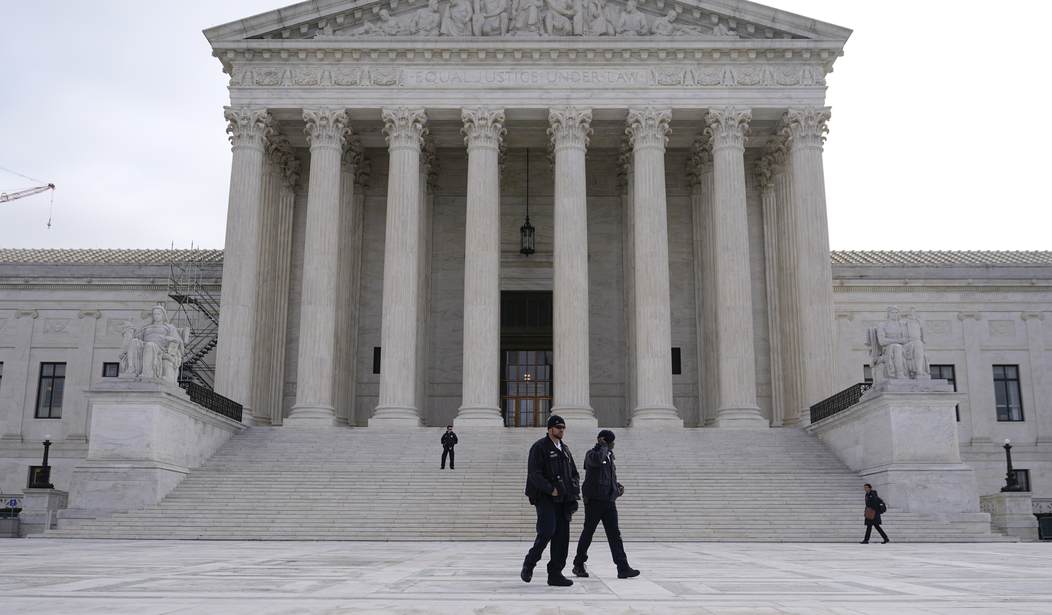The obvious and short answer to the title question is no. The Supreme Court doesn’t take up questions regarding court cases that it hasn’t been asked to review. But that could be the inadvertent result depending on the outcome of a case the court agreed to hear this week. It’s the case of Moore v. United States, and if the plaintiffs prevail, the court’s ruling might prevent the passage of any sort of “wealth tax” that the Democrats have been trying to force through for years. In fact, the plaintiffs in the case have effectively asked the court to set that precedent. But this case isn’t a slam dunk by any stretch of the imagination. (New Republic)
The Supreme Court took up a case on Monday that could make it nearly impossible for Congress to pass a federal wealth tax, giving the justices an opportunity to torpedo a major Democratic policy proposal before it can be enacted. The plaintiffs who brought the case have all but urged the court to do exactly that.
In Moore v. United States, the justices will consider whether a provision of former President Donald Trump’s tax-reform law in 2017 violated the Sixteenth Amendment, which allows Congress to collect federal income taxes. As part of a complex restructuring of federal corporate tax laws, the 2017 law imposed a one-time “mandatory repatriation tax” on American taxpayers who owned more than 10 percent of a foreign corporation.
This case involves questions regarding the Sixteenth Amendment and, strangely enough, Donald Trump. An obscure facet of Trump’s 2017 tax reform bill imposed a new tax on people owning a sufficiently large share of a foreign business. The plaintiffs fell into that category and were forced to pay several thousand dollars in extra taxes. But they argued that their township of a stake in an Indian farm-equipment company didn’t constitute “income” under the Sixteen Amendment and should therefore not be taxable.
The plaintiffs lost in the lower courts, but the simple fact that SCOTUS agreed to hear it makes it interesting. Keep in mind that the Sixteenth is one of the shorter amendments to the Constitution, being only a single sentence long. It established the right of Congress to lay and collect federal income taxes. The amendment refers to “incomes, from whatever source derived…”
That brings us back to the question of what does or doesn’t qualify as “income.” The court has ruled on this previously and determined that income is defined as, “gain derived from capital, from labor, or from both combined, including profit gained through a sale or conversion of capital assets.” So stock in a company, either domestic or abroad, definitely qualifies as a “capital asset.” But the court also stipulated that the asset would need to have undergone a “sale or conversion” resulting in some profit to the holder.
The Moores reportedly hadn’t sold their stock or converted it in any fashion. So that would seem like a fairly strong argument in their favor. Now we can bring this back to the so-called “wealth tax” that’s been proposed by elected officials including Senators Elizabeth Warren and Ron Wyden, as well as the current President. They have suggested forcing stockholders to pay a tax on the current value of the stocks they hold. Other versions involved the perceived “profit” from stocks that have risen in value since being purchased.
But simply holding a stock doesn’t put any more money in your pocket. And there is obviously no way to accurately predict what the stock will be worth next week, next month, or next year, so a “wealth tax” would be ambiguous at best. And based on the court’s definition of wealth, that stock doesn’t represent any “income” until it is sold. So it does indeed seem as if a victory for the Moores, in this case, could create a precedent that would make most current discussions of “wealth taxes” non-starters.







Join the conversation as a VIP Member